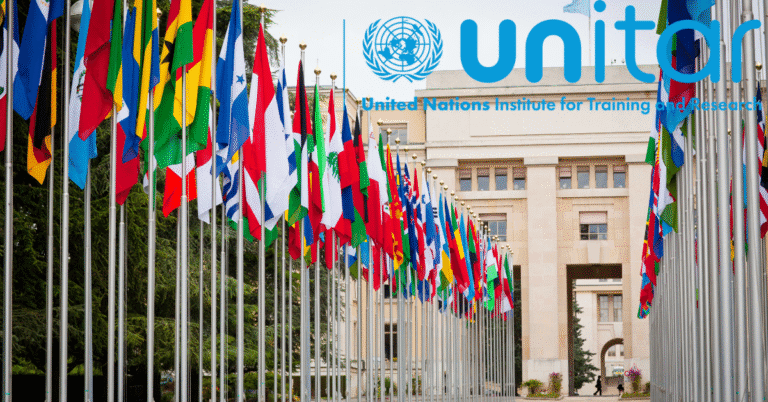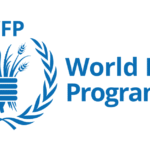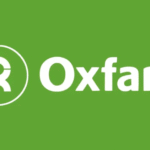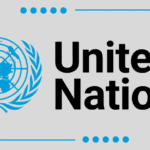Explore the United Nations University (UNU) non-degree courses and training programmes for 2025–2026. Learn about available workshops, online courses, certificates, capacity-building opportunities, and how to apply.
The United Nations University (UNU) offers a diverse range of non-degree courses and professional training programmes designed to equip learners with practical, solution-driven skills to address global challenges. These programmes are offered across multiple UNU institutes worldwide and are open to students, professionals, early-career researchers, and practitioners seeking to expand their knowledge without enrolling in a full degree.
From single-day expert workshops to multi-week certificate programmes, UNU’s non-degree opportunities provide world-class education aligned with the Sustainable Development Goals (SDGs).
What Makes UNU’s Non-Degree Courses Unique?
UNU is the academic arm of the United Nations system, providing research-based teaching focused on global development, governance, climate resilience, innovation, and human security.
Key features of UNU’s non-degree training options include:
- Practical, solutions-oriented learning
- International instructors and research-based content
- Opportunities to earn UNU certificates
- Flexible formats: workshops, short courses, online modules, and intensive programmes
- Global virtual classrooms with peers from around the world
- Specialised training aligned with UN priorities
These programmes are perfect for individuals seeking to upskill, transition careers, or broaden their international development expertise.
For more opportunities like these, be sure to follow us on Facebook, join our WhatsApp Group and Channel, and connect with us on LinkedIn.
Types of UNU Non-Degree Courses Learning Opportunities
Below is a breakdown of training programmes available across the UNU system.
1. UNU-BIOLAC
Biotechnology Training Courses
- Hands-on training in biotechnology, bioinformatics, molecular biology, genetic engineering
- Research fellowships for early-career scientists
This institute focuses on building scientific capacity in Latin America and the Caribbean.
2. UNU-CRIS
Capacity-Building Programmes
Courses on:
- Regional integration
- Governance
- Public policy
- International cooperation
These programmes help participants understand how regions can collaborate for sustainable development.
3. UNU-EGOV
Digital Governance Training
Focus areas include:
- e-Government systems
- Digital transformation
- Public sector innovation
- ICT governance
Ideal for government officials, innovators, and policy practitioners.
4. UNU-EHS
e-Learning on Environmental Risks and Resilience
Training areas include:
- Disaster risk reduction
- Climate resilience
- Vulnerability assessment
- Environmental security
Courses are delivered through interactive online modules.
5. UNU-FLORES
Online Courses and Technical Training
Focus on:
- Integrated resource management
- Water, soil, waste, and land-use sustainability
- Environmental governance
These courses emphasize environmental solutions for global challenges.
6. UNU-IAS
Credited Courses & Certificate Programmes
Topics include:
- Sustainability
- Global change
- Governance and development
- Education for sustainable development (ESD)
Some courses offer academic credit or official UNU certificates.
7. UNU-IIGH
Capacity-Building in Global Health
Training includes:
- Health systems
- Policy development
- Women’s health
- Public health leadership
These programmes target health professionals, researchers, and government stakeholders.
8. UNU-INWEH
Water Education and Learning Centre
Programmes include:
- Water security
- Marine ecosystems
- Climate adaptation in water systems
Also offers the well-known Water Without Borders postgraduate programme.
9. UNU Macau
Training in Technology, Development, and Governance
Courses include:
- Digital governance
- Artificial intelligence
- Data innovation
- ICT for development
A key hub for digital transformation within the UN system.
10. UNU-MERIT
Capacity Development & Migration Diploma Programmes
Topics include:
- Migration management
- Economics of innovation
- Technology policy
- Evidence-based public policy
Includes short courses and online modules for flexible learning.
11. UNU-WIDER
Non-Degree Learning Opportunities in Economics and Development
Courses address:
- Poverty reduction
- Economic growth
- Policy modelling
- Development finance
Ideal for researchers, policy analysts, and economists.
How to Apply
Application procedures differ by institute, but the general process is:
- Visit the relevant UNU institute’s website
- Identify the course you want to take
- Review eligibility guidelines
- Complete the online application form
- Upload required documents (CV, motivation letter, ID, etc.)
Some courses are open-enrolment, while others require selection based on merit.
APPLY NOW
For more opportunities like these, be sure to follow us on Facebook, join our WhatsApp Group and Channel, and connect with us on LinkedIn.
Related Opportunities on Flex Jobs Space
- UNDP 100% Remote Volunteer Assignments 2026 – Paid & Fully Funded
- Mercy Corps Global Fellowship 2026 – Fully Funded Training + Monthly Stipend
- UNICEF Remote Internship 2026 – Paid International Opportunities
- Global Fellowships & Skills Training Programs 2025
Who Can Apply?
Eligibility varies by programme, but most courses accept:
- Students
- Graduates
- Professionals
- Researchers
- Government officials
- Development practitioners
Many programmes require no previous work experience, especially introductory and online courses.
Benefits of UNU Non-Degree Training
- Earn a globally recognized UNU certificate
- Build practical skills for development careers
- Learn from world-class UN researchers and practitioners
- Access international learning communities
- Strengthen your profile for UN jobs, internships, and consultancies
These courses often serve as stepping-stones to competitive UN career pathways.
Frequently Asked Questions (FAQ)
1. Do UNU non-degree courses provide certificates?
Yes. Many courses offer official UNU certificates upon successful completion.
2. Are the training programmes free?
Some are free, while others may charge a fee depending on the institute and course type.
3. Do I need experience to apply?
Not always. Many training programmes are open to beginners.
4. Can I apply from any country?
Yes. Most UNU online courses accept applicants globally.
5. Are these courses equivalent to a UN job qualification?
They strengthen your profile but do not guarantee employment.
6. How long do the courses last?
They vary from one-day workshops to multi-week or multi-month programmes.
7. Do any courses offer academic credit?
Yes. UNU-IAS and certain other institutes offer credited courses.
Keywords
UNU non-degree courses, United Nations University training, UNU certificate programmes, UN online courses, UNU workshops, UN capacity-building, UN training 2026, global development training, sustainability courses, UN education programmes







